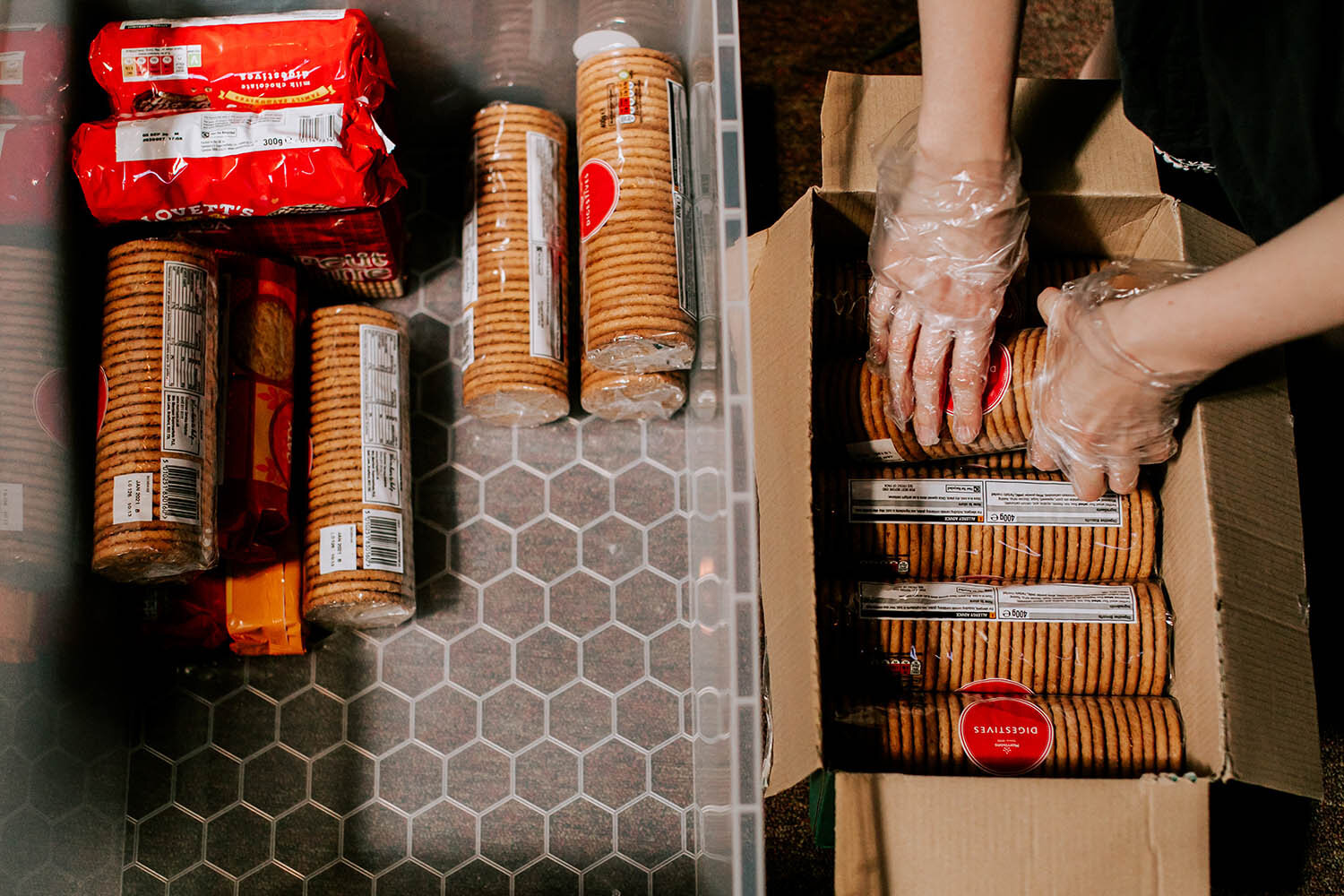Geoff Poulton, freelance tech and sustainability writer
From huge surges in demand to emergency relocations and new health protocols: coronavirus has presented food banks with an unprecedented set of challenges. In our latest blog post, four food bank managers tell us what they’ve learned over the last six months and what may still be to come.
St. Peter’s Brockley Food Bank, South London
Anne Whyte, Manager
What’s the most important thing you’ve learned about running a food bank during the pandemic?
As strange as it may sound, we’ve been grateful that the pandemic has exposed the poverty that was already in our community. It can be easy not to notice people who are struggling as they seem to go about it quietly. Coronavirus and its ensuing economic difficulties have forced us to really look at our neighbourhoods and see those in need. This has been really good for us and allowed us to engage with everyone in our community, not just those who look like most of us.
What’s been the biggest challenge?
Keeping up with demand. And testing our organisational and logistical skills as things grew so rapidly.
Lockdown may be easing in some places, but why do people still need to be aware of the importance of food banks?
The economic impact of the pandemic isn’t going away anytime soon. We’re expecting a new wave of need as furlough assistance comes to an end this autumn. Of course, there’ll be a greater need again if there is a second peak in the autumn and winter. And most of our elderly and physically vulnerable recipients are still sheltering and need help procuring food.
Purple People Kitchen, Brighton
Ann Menhinick, Treasurer
What’s the most important thing you’ve learned about running a food bank during the pandemic?
I learned that I’m not essential! As quite a few of our volunteers are older, we had to leave a lot of the hard graft to the younger members, who stepped in and quickly had a very efficient system in place.
What’s been the biggest challenge?
Our initial worry was maintaining a constant source of food. Before the pandemic, we supplied food for around 70 households. Within a week, that had risen to 160. We got a lot of support from local wholesalers, who passed on many items in addition to those we bought. And we’re very grateful to Bankuet for their contributions.
Lockdown may be easing in some places, but why do people still need to be aware of the importance of food banks?
Those working in the service industries, tourism and leisure will feel it greatly. Brighton and Hove have thousands of short-term contractors on minimum wage: many will be running out of funds. Food banks are a first line of defence against total breakdown for many family units.
Earlsfield Food Bank, South London
Charlotte White, Manager
What’s the most important thing you’ve learned about running a food bank during the pandemic?
The importance of agility and co-operation. Due to the pandemic, our previous venue became unavailable. Suddenly, we had to move location, enlist new volunteers and, most importantly, tell guests about the change. This was only possible thanks to a huge community effort across Earlsfield. In the worst of times, we’ve seen the best of people and we really hope this spirit continues.
What’s been the biggest challenge?
Setting up the delivery system. Many of our guests were isolating or shielding and we didn’t want people making unnecessary trips. At the peak of lockdown we were doing 50-60 deliveries a week, which meant recruiting more volunteers at a tricky time. We also had to put lots of new safety protocols in place to minimise risk for guests and deliverers.
Lockdown may be easing in some places, but why do people still need to be aware of the importance of food banks?
The economic impact of the recession will sadly put more people in need. Our numbers have already tripled since March and I can only see them increasing further in winter.
Hailsham Food Bank, East Sussex
Julie Coates, Project Manager
What’s the most important thing you’ve learned about running a food bank during the pandemic?
The need to act ahead of time and be extremely adaptable. Around 90% of our volunteers had to stop at the start of lockdown due to age. And neither our warehouse or distribution centre allow for social distancing, so we moved some of our operation to a local church. We also had to shift to an online referral and delivery-only service in the space of a few days. But we’ve seen that all the contacts we spend time making throughout the year are more than willing to help at our time of need.
What’s been the biggest challenge?
Initially, we were so busy that we were running out of food several times a week. And because the shops were so busy, we couldn’t rebuy in the quantities we needed. We were grateful for support from other local food banks and even a local tea room, which ordered items through its wholesaler. Somehow we always had enough food for our parcels.
Lockdown may be easing in some places, but why do people still need to be aware of the importance of food banks?
We’re already starting to see redundancies and after a tough few months, plenty of people just won’t have enough money to see them through. Ultimately, we want to see a day when food banks are no longer needed and everybody has enough income for their basic needs.
Looking for ways to help?
Bankuet helps get food banks what they need, when they need it.

